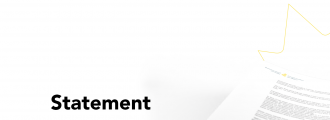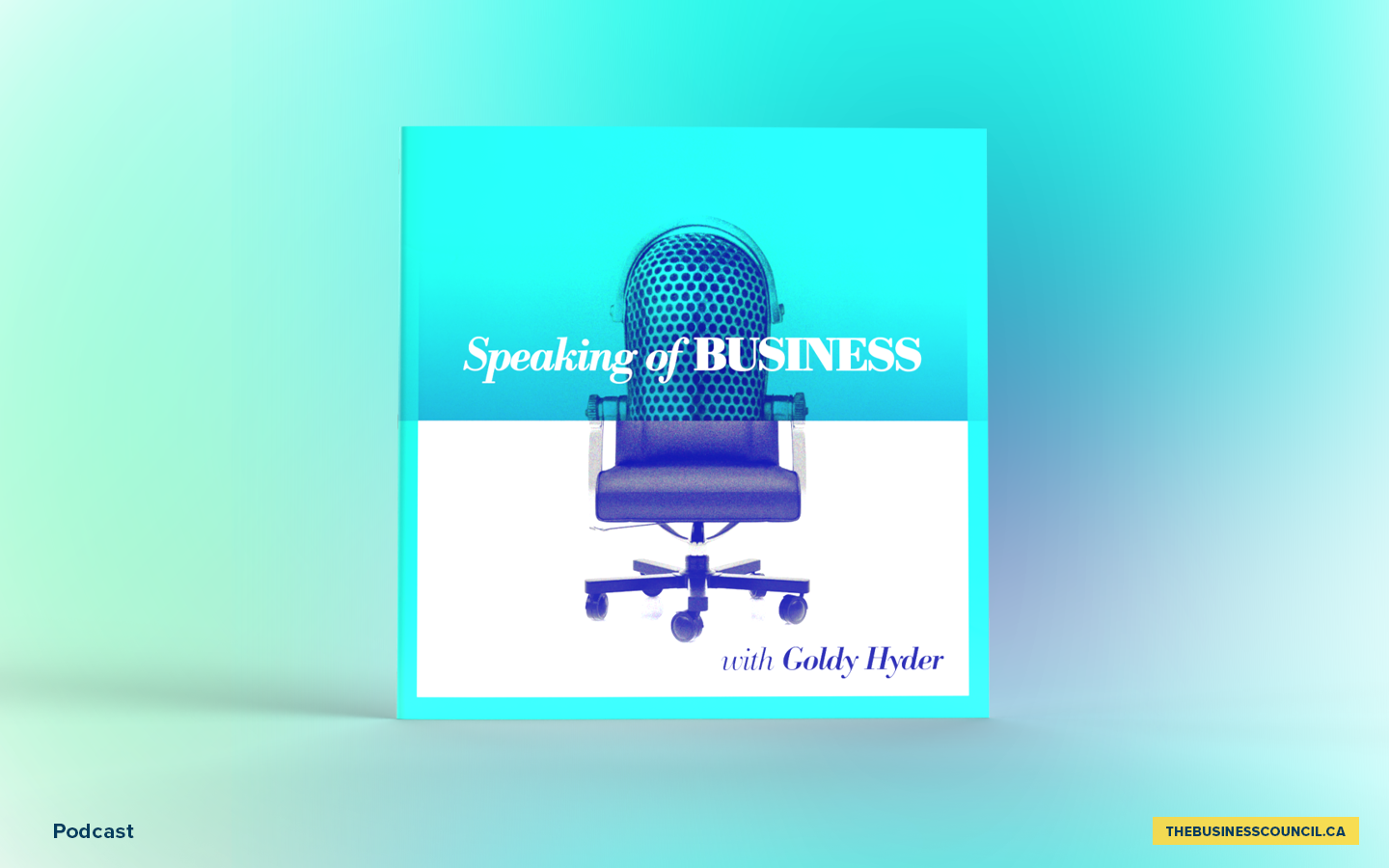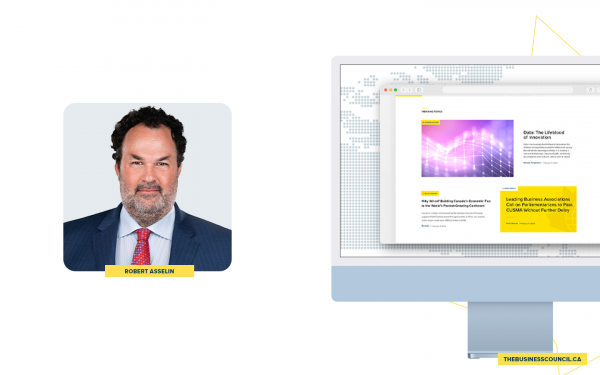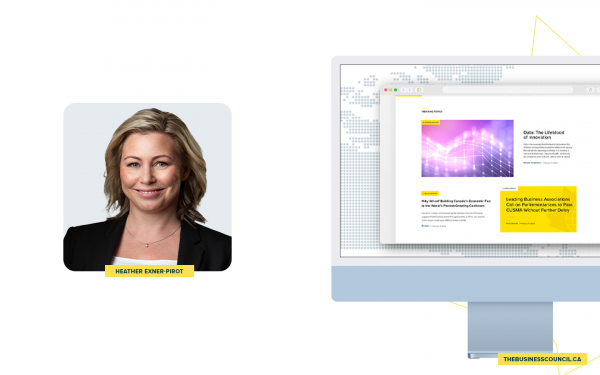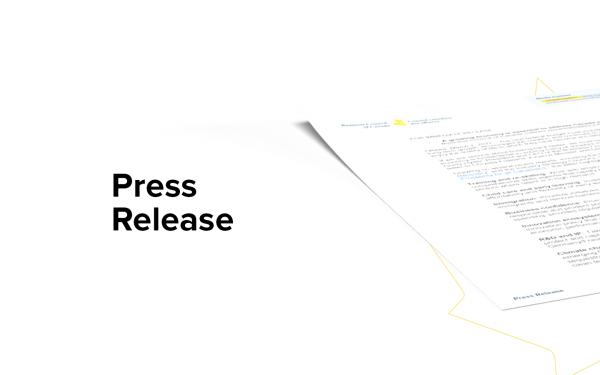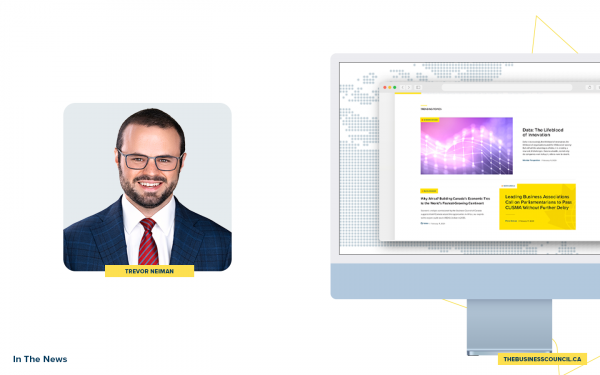I’m encouraged by the capacity to change at an accelerated pace
In light of the COVID-19 emergency, we’ve temporarily suspended our regularly scheduled series of conversations with Canadian CEOs. But we’re not going away. Instead, we’re going to pivot to the health emergency itself. We’re going to explore the impact on companies and workers across the country. And we’re going to find out how business leaders are responding to crisis.
“I’m encouraged by the capacity to change at an accelerated pace.” Heather Chalmers, President and CEO of GE Canada, reflects on how the COVID-19 pandemic is hastening innovation, and what she is learning about Canada as the country responds to the crisis.
Latest Podcasts
Transcript
Goldy Hyder:
Welcome to Speaking of Business. I’m Goldy Hyder of the Business Council of Canada. It’s been 11 weeks since COVID-19 was declared a pandemic and boy, have we learned a lot; about the virus, about ourselves and about the way we operate as a country. For Canada’s business leaders, the learning curve has included many challenges like re-tooling to supply medical equipment, or ensuring a safe workplace for employees, or re-configuring to work from home. As Canada takes the first cautious steps towards re-starting the economy, many leaders are taking all that they have learned and applying it to help us come out of this crisis healthier and stronger.
Goldy Hyder:
My guest today brings much perspective on the lessons learned. As President and CEO of GE Canada, Heather Chalmers oversees an organization that provides industrial solutions to Canadians across a broad range of sectors, from transportation, to electricity, to medical technology. Welcome to the podcast, Heather.
Heather Chalmers:
Thank you very much for having me.
Goldy Hyder:
Well look, it’s great to have you on. As I said in the introduction, there’s a lot of things that GE touches. So why don’t we just jump right into it and you can talk to us about what effect the pandemic is having on your business.
Heather Chalmers:
Sure. You mentioned it earlier. GE in Canada is in a lot of different businesses, in aviation, in renewables, power and healthcare and each one of them has been affected a little bit differently. Certainly the healthcare business has been running full stop in terms of manufacturing equipment like ventilators. We hear a lot about ventilators for Canadians and for the globe. In our renewables and power business, they continue to operate albeit with some delay. I don’t want to say business as usual but it’s more normal than not. And then finally our aviation business has been the hardest hit. Unfortunately we are looking at or anticipating at least a two year turnaround in that particular market.
Goldy Hyder:
The good, the bad, and the ugly to some extent, it sounds like.
Heather Chalmers:
Yes.
Goldy Hyder:
But let’s talk about the positive then because I know the health care division is a very big part of your opportunity to help get us through this challenge that we face. How has that part of your operation adjusted and responded to COVID-19?
Heather Chalmers:
Great question and I have to tell you, I have been so incredibly impressed with the team and our customers, frankly. It would have been easy to become overwhelmed with everything that was happening but instead they looked for ways to innovate and accelerate the change management process that goes around innovation. And I’ll give you one example. When we started off 2020, like most companies we look at what are our strategic priorities. A big one was adopting more virtual tools to connect with clients and patients in a much more advantageous way and COVID-19 has accelerated that.
Heather Chalmers:
In our headquarters office, which is located in Mississauga, we, in fact, took a number of our meeting rooms and we have converted them into virtual studios. So now we have our applications or our technicians working directly with clinicians across the country and training them on equipment virtually and this, honestly, would have taken years to have done without the accelerator of COVID. So, that’s just one example of how the team is innovating, I think in a really positive way.
Goldy Hyder:
Yeah, that’s a great example. I mean, a lot of the themes I’m hearing now from businesses is, how do we build back better? And clearly the acceleration has been a very big part of that. What are you hearing from your customers?
Heather Chalmers:
In terms of what our customers are telling us, and more importantly, how we are responding, I will give an example from our healthcare business. As you can imagine, with the hospitals so focussed on dealing with COVID patients and that expected ballooning of need, many other elective and non-urgent procedures were stopped altogether. So, what you have right now in the Canadian healthcare system is an incredible backlog of patients that haven’t, as a good example, had their annual breast screening. It’s really important that those women who are your mothers, your daughters, your sisters, your aunts, get that mammo done as expediently as possible so that, if in the unfortunate case they are diagnosed, we can get them the care that they need as quickly as possible.
Heather Chalmers:
So, what we’re doing is we are working with different providers across the country in looking at their workflows. How do they bring patients in to their facilities in a very safe environment that doesn’t make them feel anxious. But how do we optimize that whole experience and the workflow so that we can get through that backlog of those patients, those women, in terms of their screening mammography. And so that’s just one particular example, but think about that for all the other “ologies” that are out there. It’s really, really important that we don’t create another problem because all of these “non-urgent cases” become urgent due to the delay in clinicians seeing them. So that’s just one example of how we’re working with customers in this COVID environment.
Goldy Hyder:
You and I spoke a few weeks back and you said something that really stuck with me. We were talking about the restart of the economy and you said, you can’t stop the world. Now I’m wondering, what do you need as a leader to open back up fully in terms of returning to a more normal work environment. How is that planning going at GE?
Heather Chalmers:
I’ll split it up between our manufacturing environments and our administrative offices, because they’re two distinct settings. In the manufacturing operations we just continue to innovate. I have been so encouraged by what we’ve seen and how people have stepped up to be creatively disruptive. Our administrative offices, we have closed them down and everybody has transitioned to working from home very well. As we look to open those up, I have gone on record as saying, this is not where I want necessarily to be a leader or even a fast follower. I would rather wait and see and learn from how others are doing it before we move into our office.
Heather Chalmers:
I’ll give you another reason why. Early in the year, we transitioned into a new headquarters office. When we developed the environment in that new headquarters office, we went to open concept and with the whole purpose of how do we create environments where people could work shoulder to shoulder, and innovate together, and have these discussions that were going to lead to great things. Well, now think about that in the environment of COVID. The two necessarily don’t work as well as originally planned.
Heather Chalmers:
So those are the things that we’re trying to think about. How do we bring people back so that they feel safe? Another interesting thing is, we [inaudible] a number of employees to get a sense of where their heads are at. The use of additional PPE, say face masks, in the work environment, where intuitively you might think that you would feel safer, they actually feel unsafe. And does this imply that the environment isn’t safe to be in? So there’s a lot of moving pieces here, but my opinion is that we’ve got some time. We’re operating quite well from our home offices. So I don’t want to push this until we have to.
Goldy Hyder:
Yep. That’s be safe, not sorry and that’s great. GE of course, is a very large, well known global brand and in your capacity as CEO you interact with a lot of your colleagues around the world. I’m wondering what you’re hearing from them, in terms of how the rest of the world is perhaps handling this challenge that’s been impacted. What are you learning?
Heather Chalmers:
We have the benefit of learning from our friends and our colleagues in China, as an example, and our Shanghai facility was one of the first major offices to get back to work. We have around 4,000 employees in that office. We are taking lessons learned on how they staggered their back to work program and best practices and maybe things that they wouldn’t do differently. So, we do have that benefit. I wouldn’t say that there was anything earth shattering that maybe, intuitively, we hadn’t thought of.
Heather Chalmers:
One unique thing though, is when you bring people back and you put them in their cubicles and how you separate, when they move, say, to go have lunch. I think many people have seen pictures of how they have Xs or where you can sit during your breaks and whatnot. One thing stuck out for me is that you have a designated spot. So that if, unfortunately, someone does get diagnosed with COVID, then you can easily trace that person’s pattern and who they’ve interacted with, when you’ve got designated spots. That was the one thing that I took back that said, Hey, how could we apply that in our manufacturing plants? And then is it something to consider when we bring people back into the offices?
Goldy Hyder:
Yeah. That’s good to hear because it gives us context, right, as to how we’re doing as a country. I’m wondering on that front, one of the areas that you’re involved in, of course, is healthcare and healthcare being pretty much a provincial responsibility. What are you learning about Canada and the way in which we function. I mean, there’s a lot of conversations going on out there about testing and tracking and tracing and the availability of PPEs. What can you share with us in terms of the areas for improvement as a country and the areas where we’re doing well?
Heather Chalmers:
Oh, Goldy, that’s a loaded question. I could spend a full day on this discussion. I am very encouraged by how quickly our healthcare system was able to adapt and change using different types of innovation, that I think, under normal circumstances, would have taken a very long time to do. What it shows me and tells me, is that Canada’s healthcare system is fully capable on a go-forward basis. Think of adapting to best practices that maybe have been used globally in ways that there’ll be no excuse, I hope, not to continue on in some directions post-COVID, if you can even say post-COVID. So that’s the positive for me. I’m encouraged by the capacity to change and at accelerated pace.
Heather Chalmers:
I think, not surprising, what COVID did was it exposed where we’ve got risks and vulnerabilities in our healthcare system and not just on the delivery side but on the supply chain side. As we move forward Canada… and we want to be part of that conversation and we’ve made it known. We’ll have to look at, what are those critical elements, not just for a pandemic, but I think in terms of just running the Canadian healthcare system, that we may want to have more level of local control over or a level of redundancy. So, I’m encouraged by the accelerated capacity to adapt to change but, as exposed, perhaps an opportunity to have more local control of where those critical elements that our healthcare system needs in order to run.
Goldy Hyder:
Well, thanks for sharing that. I think it’s important for people to learn what’s working and where we can improve. It’s something good that has to come out of this crisis. Now, speaking of good, I want to ask you about what GE has been doing from its philanthropic perspectives. What are you doing to help those that are less fortunate in the community to manage through this crisis?
Heather Chalmers:
Great question. We’ve taken a number of different approaches. At a global level, for example, we’ve started something called the GE global Employee Relief Fund. Anybody can donate to this global fund from anywhere across the world and then, similarly, employees can apply to the fund if they have a personal situation that they feel is eligible for some financial relief. I think that’s just a great opportunity for GE employees to give back and then to help our colleagues across the world. So that’s something that we’ve started on a very global level. On a more local level, it’s taken a number of different forms. For example, we’re working with customers on programs, and I’ll give you one with Bruce Power, where we could subsidize the purchase of hand sanitizer that would then be distributed to a number of community-based organizations in and around the Bruce Power plant.
Heather Chalmers:
So GE decided to participate in that and it was for a terrific cause. In other cases, employees are working directly with community groups that are associated with their plants. What we’ve done is, once a week we highlight, and people can send them in, we highlight the incredible things our employees are doing, whether it’s disruptive innovation or giving back to the community. So we make sure that we capture all of this on a weekly basis that we share whether it’s in a video that gets created, or just a picture with a couple of line items underneath it, but really showing how GE is making an impact both locally and globally and it’s been really, really well received I have to tell you. I’m just so impressed with how people do want to engage and give back in this incredible time.
Goldy Hyder:
That’s great. Thanks again for your leadership and GE’s leadership. We’re seeing a lot of that across the country, in terms of businesses really stepping up to ensure that those who can’t help themselves are able to get through this crisis and obviously in partnership with government in many cases. Last question, Heather, I mean, a lot of our listeners are aspiring leaders. And here we are dealing with this famous unprecedented word: crisis. What are you learning about leadership, and what are you learning about yourself as you navigate this crisis?
Heather Chalmers:
I think the biggest takeaway, and it’s not going to sound super exciting, but I’m still every day amazed by the importance of communication and how often you have to do it to different parts of the organization with different messages. The need for communication, and the need for that communication to find the right balance of realism, transparency but optimism and authenticity. We use that word too much, but, boy, has it been so important with our employees. They want to know that I have a plan, that our business leaders in Canada have a plan, that GE in Canada has a plan. They want to feel confident that, despite everything going on, that we know what we’re doing, we’re doing the best job possible and we will get through this together. But at the same time, they also want to know that you’re human and that you’re real
Heather Chalmers:
and as an example, I write a weekly blog, and I was very hesitant the first time to include some anecdotes about my children. I have two teenage children, because you never know, is it going to seem self serving. Well, the feedback that I’ve had from across the country, in terms of sharing these funny little stories about my children has been unreal. I think that’s the biggest takeaway, is just the need for constant communication and finding that right balance of humility, transparency but also instilling a sense of confidence and leadership and that we have a plan. All those elements are so important when you’re dealing with an unprecedented situation that we are right now.
Goldy Hyder:
Well, look, I think that’s a great place to end. It’s very inspiring. The message of communicate and authenticity is something that’s certainly coming out in a lot of our podcasts. I want to thank you for being authentic through this podcast and sharing both the issues for GE and for you as a leader. We appreciate it. Thanks for doing this.
Heather Chalmers:
Thank you.
Goldy Hyder:
Heather Chalmers is the President and CEO of GE Canada. If you would like to hear more of our conversations about the COVID-19 crisis, you can find them all wherever you get your podcasts, or simply go to our website, SpeakingOfBiz.ca, that’s biz with a zed. Until next time, I’m Goldy Hyder. Thanks for joining us. Be well.
